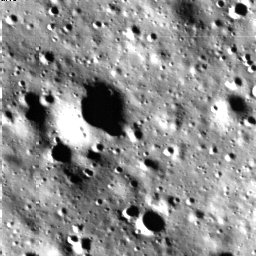Chennai: A study by the scientists of the Indian Space Research Organisation (ISRO) and others has revealed there is a higher quantity of ice on the moon within exploitable depths.
As per the study, the amount of subsurface ice in the first couple of meters is about 5 to 8 times larger than the one at the surface in both poles on the moon.
According to ISRO, the study was done by its scientists at the Space Applications Centre (SAC) in collaboration with researchers at IIT Kanpur, University of Southern California, Jet Propulsion Laboratory, and IIT (ISM) Dhanbad.
The Indian space agency said, drilling on the moon to sample or excavate that ice will be primordial for future missions and long-term human presence. “Moreover, the study also suggests that the extent of water ice in the northern polar region is twice that in the southern polar region. As for the origin of this ice, the study confirms the hypothesis that the primary source of subsurface water ice in the lunar poles is outgassing during volcanism in the Imbrian period. The results also conclude that the distribution of water ice is likely governed by Mare volcanism and preferential impact cratering,” the ISRO said.
Continuing further, it said that the research team used seven instruments comprising radar, laser, optical, neutron spectrometer, ultra-violet spectrometer, and thermal radiometer onboard the Lunar Reconnaissance Orbiter to understand the origin and distribution of water ice on the moon.
The Indian space agency said that an accurate knowledge of the distribution and depth of water ice occurrence in the lunar poles, as presented in the investigations, is crucial for constraining the uncertainties in selecting future landing and sampling sites for missions aimed at exploring and characterizing lunar volatiles.
The new study, is crucial for supporting the ISRO’s future in-situ volatile exploration plans on the moon.
The ISRO said the study has been published in the International Society for Photogrammetry and Remote Sensing flagship journal.
–IANS


Comments are closed.